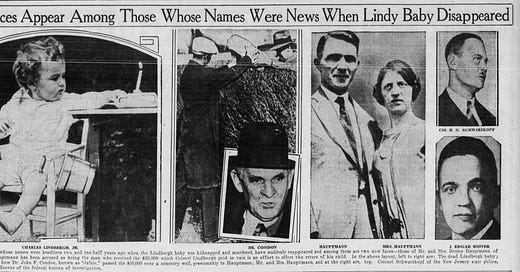Greetings to Gold and Silver Level Templar Knights! The Lindbergh baby kidnap and murder was a crime so terrible it gripped America for decades and inspired Agatha Christie’s novel Murder on the Orient Express. But was the wrong man sent to the electric chair?
On March 1, 1932, a baby was found missing from its crib. Charles Augustus Linbergh Jr. had dis…
Keep reading with a 7-day free trial
Subscribe to The Templar Knight to keep reading this post and get 7 days of free access to the full post archives.





